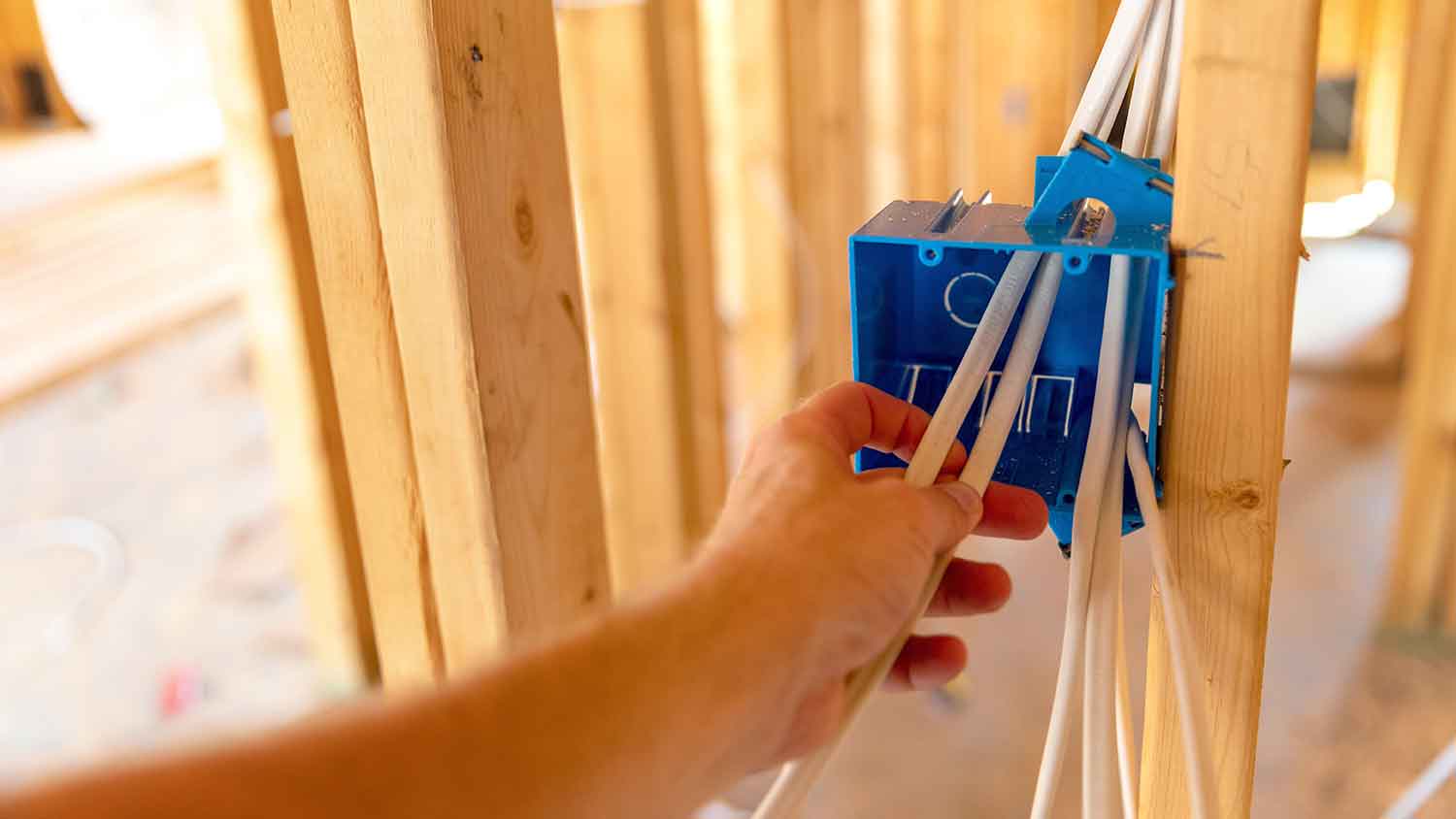Who Do I Hire to Install an Electric Garage Heater?
Stick with a pro who knows about power


Knowing who to hire to install an electric garage heater sets you up for a smooth installation. We recommend hiring an electrician to install an electric garage heater for safe, reliable, and long-lasting results.
This power-hungry appliance requires electrical wiring, so you'll want to contact a professional electrician to set it up for you. One of the many benefits of hiring an electrician for this job is that they’ll know how many amps to place on each circuit breaker. Learn what's involved in the installation so you understand what to expect when you give your garage heater the green light.
Benefits of Hiring an Electrician for Installing an Electric Garage Heater
Hiring a local electrician to install your garage heater ensures the appliance will work with all safeguards in place. Some of the other advantages the electrician provides for this type of job include:
Making sure the installation goes smoothly the first time.
Helping you find the right size of appliance to heat the space you have.
Determining whether your current electrical panel can handle the heater or whether you may need to install a subpanel.
Using the proper types of electrical wires for the electric garage heater to ensure it can handle the power load.
Setting up necessary safety measures to operate the heater with the least risk of starting a fire.
Obtaining any permits you may need for the job from your local building inspector’s office.
Following all local codes so you don’t have an issue down the road if you are trying to sell your home or need an electrician to service the garage heater.
Expect to pay up to $100 per hour to hire an electrician to install your electric garage heater. The job will take at least two hours, but it can take longer if you need to add a subpanel, run a significant amount of new wiring, or change out any circuit breakers.
Can I DIY Installing an Electric Garage Heater?
Because the garage heater cost can surpass $1,000 for a larger unit, you do not want to make an error during a DIY installation that damages it. Plus, the project involves knowledge about electrical wiring, which the average homeowner may not possess.
If you are insistent on doing the job yourself, think about the garage heater size that you’re purchasing. A smaller, lightweight garage heater may be easier for you to work on yourself. Or, if you purchase a garage heater that can plug into an already-existing electrical outlet, rather than a unit that needs hardwiring or a new outlet, you may be able to DIY the job and hang the unit yourself.
For a larger unit that needs hardwiring, you will want the peace of mind that comes with hiring a pro electrician. After you hire an electrician to install an electric garage heater, you can DIY the garage insulation to help your heater be more efficient. Be sure to weigh the pros and cons of insulating garage spaces before adding the installation yourself or hiring a local insulation company, as this can be expensive. The average cost to insulate a garage is $4,700.
Can I Hire a Garage Builder to Install an Electric Garage Heater?

If you are in the process of adding on to the garage or building a garage when you decide to install an electric garage heater, a local garage builder can likely do the installation for you.
However, it’s also possible that the garage builder will subcontract the job to a licensed electrician, depending on the licenses and skills the builder holds. Consult your garage builder about installing a garage heater as part of a larger project to see if they can bundle the services.
How Do Electricians Install an Electric Garage Heater?
The electrician may follow several steps to install your electric garage heater. For instance, they will likely:
Help you determine the proper heater size for the open space in your garage.
Determine whether you need new wiring from the electrical panel to the garage to handle the heater or whether existing wiring will do the job.
Determine whether you have space in your current electrical panel to handle the garage heater or need a subpanel installed.
Install any new circuit breakers required to handle the load from the heater.
Install a junction box in the garage to handle the wiring serving the heater.
Hang the electric garage heater in the desired location, securing its bracket to the wall studs.
Remove the cover on the heater and connect the wiring from the heater to the wiring extending from the junction box through the conduit.
If the electric garage heater you select has a separate thermostat, connect the wires between the thermostat and the heater.
Test the electric garage heater to ensure it operates properly without placing too much load on any circuit breaker in the main electrical panel or subpanel.
Be certain the garage heater is safe to operate while making the fire risk as low as possible.





- How to Determine Garage Heater Size: A Complete Guide
- Who Do I Call to Install Power in My Garage?
- How To Build A Garage: Full Guide from Planning to Finish
- How to Heat a Garage for the Winter: 7 Must-Know Tips
- How to Keep Your Garage Door from Freezing to the Floor
- Who Do You Hire to Build a Garage?
- Who Fixes Water Heaters? Find a Pro to Get Your Hot Water Running Again
- How to Wire a Detached Garage and Why You Should Leave It to the Pros
- Top 6 Affordable Garage Remodel Ideas
- Who Can I Hire to Finish a Garage?









